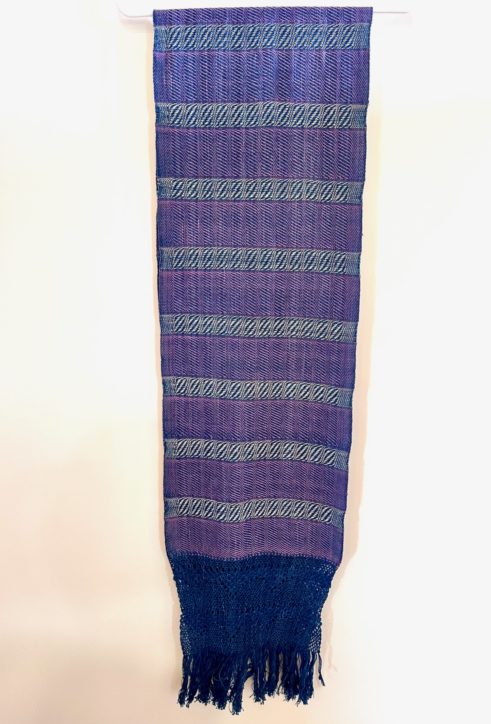I got this message today from dear friends who live near the tributaries of the Cape Fear River in North Carolina. The important note is that they are safe, and that they could employ Mexican immigrants (we don’t ask if they have papers) to help them dig out.
THANK YOU, to the Mexicans who travel here in search of jobs, we appreciate your work ethic and desire to pitch in, to send money home to your families, and we honor and respect you.
Here’s part of the message:
“Most folks who know us are aware that our 12 acre property was under water during Hurricane Fran 20 years ago, the day we were to move into our new home. There has been occasional minor flooding since then. Although we have carried flood insurance, we have never had to use it until now. This time was a little different with the creek behind our property overflowing upstream and coming across the front yard, in addition to the back 3 acres flooding over the lower banks. The house, which is slightly higher than the ground, quickly ended up as an island amidst rushing water on all sides. Two neighbors who came down to offer help were also stranded in the house with us when we finally called 911. The 4 of us and our 2 goats were evacuated via a Swift Water Rescue motor boat.
It must have been quite a sight! Unfortunately our youngest goat drowned earlier. That tragedy has been the worst part of all. The 12 chickens spent the night in our upstairs bathroom and the dog and 2 cats stayed together in the upstairs bonus room. The 2 horses were on high ground and entertained by all the excitement and extra loving. Our neighbor is the anchor for the nightly news so once again the farm was featured!
Fortunately water did not come directly into the house. Yesterday there was 2 ft. of standing water in the crawl space beneath the house, about 2 inches from the sub-flooring. After pumping 24 hrs. we still have about water so are unable to assess the full damage to the flooring. We do know that we lost ducts, installation, all of our HVAC units and a hot water heater. The yard and pastures were littered with debris. 2 freezers we used for animal feed storage floated away as well as the chicken coops and tack shed inventory. Minor water is in the vehicles.
God mysteriously touches us when we least expect it. We located 8 Hispanic migrant workers who were out of work due to the loss of the tobacco crop. Greeting us with grateful and smiling faces, they worked all day yesterday and today to rebuild fences and shelters for our animals.
It is a beautiful Fall day and hard to believe that so much has happened here.”
I’m so happy my friends are safe. That they have help. And, that I am here to vote against the wall.








Give Thanks to Latino/a Labor on U.S. Labor Day
Participate in the Facebook Event: Give Thanks to Latino/a Labor on Labor Day
Today I’m picking weeds in my garden, getting ready for a big Labor Day shebang that Stephen is preparing for in our North Carolina yard. Sweat is streaming from my brow, dripping onto the earth, and after an hour I have to take a break. A LONG break. That got me to thinking about Labor Day, its origins, who is doing the physical labor in America, and what Labor Day means to me beyond the annual Bar-B-Que in the back yard with family and friends signaling the end of summer.
For the most part, the labor required to do America’s back-breaking physical work is done by Latino immigrants who tend to our agricultural farms, till the soil, plant the vegetables, cultivate and harvest them, and put food on the table for our enjoyment and sustenance.
They work in orchards and nurseries, on landscaping and construction crews and restaurant kitchens in cities and towns across America.
We depend on Latina labor to clean our houses and care for our children. I see immigrant women of all ages in every town I visit in America working as caregivers and orderlies in health care units, hospitals and nursing homes.
In North Carolina, our chicken plants are staffed by Latino Labor who do the work that is dangerous, bloody and stinking, and repulsive to most. They kill, clean and process the fowl that become chicken breasts, legs, thighs that are carefully packaged for our consumption that show up neatly, row upon row at our local Harris Teeter or Lowe’s or Food Lion or Kroger.
For every low paying job imaginable, think of a Latino/a worker. I want to honor and give thanks to the men and women who work to serve the needs of America. Won’t you join me?
Participate in the Facebook Event: Give Thanks to Latino/a Labor on Labor Day
Like this:
Comments Off on Give Thanks to Latino/a Labor on U.S. Labor Day
Posted in Cultural Commentary, Mexican Immigration
Tagged blogsherpa, farm workers, labor, Labor Day, Latina, Latino, Mexico, Oaxaca, postaweek2011